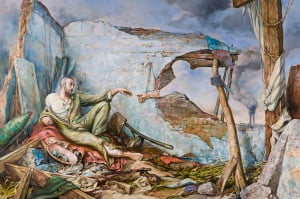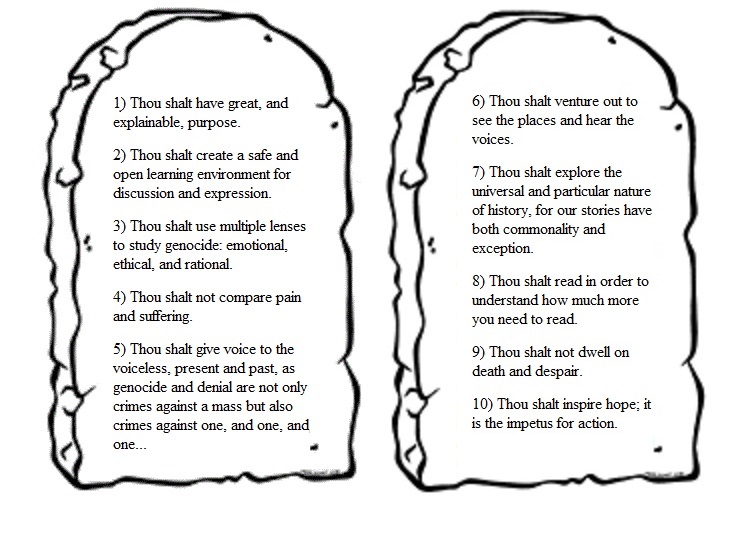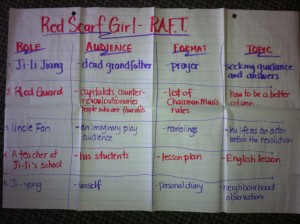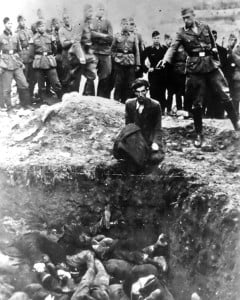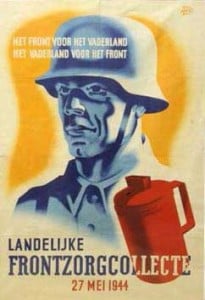One of my most powerful childhood memories is seeing "The Ten Commandments" in the original "Cinemascope" at the now demolished Glendale Cinema on Avenue Road. I never forgot the grandeur of the huge screen especially in scene where Moses (Charlton Heston) epically raised his arms with the Rod of God aloft, and the sea crashed down upon the pursuing Egyptians while Pharaoh (Yul Brynner) gasped in awe and said: "The Lord is God." So much for nostalgia. I wonder what Moses would have said watching a synagogues of Germany burn down on Kristallnacht when firefighters stood idle and crowds gathered to gawk? He might well have asked, as do my students, "where was God"?
Where was God during the Shoah? Jewish students seek answers in Art and Tradition
Posted by Jack Lipinsky on April 21, 2013
Topics: History, Holocaust Education, Lesson Ideas
One of the challenges many teachers experience is trying to meet the needs of their diverse student population in their respective classes. Differentiated instructions strategies (D.I.) enables teachers to better meet these varied needs and in turn enables students to be successful because their needs are met at their level of readiness, interests and learning styles.
Topics: History, Middle School, Strategies, Lesson Ideas, English Classroom, Literature
"The Last Jew in Vinnitsa": How Media provides a way to understand Perpetrators/Bystanders/Victims
Posted by Jack Lipinsky on April 7, 2013
Graphic imagery is used in this lesson. Please read the full post before teaching this.
I start by displaying the famous photo called "The Last Jew in Vinnitsa."
I say, "This was the title given by the Einsatzgrup soldier in whose pocket it was found, scribbled on the back. Vinnitsa is a small town in the Ukraine whose entire Jewish population was wiped out by the Einsatzgruppen mass killing methods in 1941."
This is all I tell my students when displaying this picture. They have already learned about the Einsatzgruppen and read the selection on "Battalion 101" in Holocaust and Human Behaviour Chapter 7 Reading 3 . They have also been taught that there are three groups involved in genocide: perpetrators, bystanders, and victims.
Topics: History, The Last Jew in Vinnitsa, genocide, Genocide and Crimes Against Humanities Course, Lesson Ideas, reflection
Using Visual Media to Learn about Genocide--OR--Goodbye "boring" History classes
Posted by Jack Lipinsky on April 7, 2013
In my last post I noted how saturated our students are by visual media. What a sharp contrast their lives are with mine at their age. In my high school history classes, the walls were adorned with old men, mostly with mutton chop whiskers and beards, staring down at me. Each of them had their name, dates of birth and death, and a sour stare that intimidated me when I glanced at them. My teachers reverently cited these old mens' careers and quoted them to the point of endless boredom.
Topics: History, Middle School, Strategies, Genocide and Crimes Against Humanities Course, Lesson Ideas
Resources of Resistance: Why Every Grade 10 History Teacher Should Teach About the Holocaust
Posted by Ben Gross on March 14, 2013
I am often asked why I would want to teach about genocide. What would possess me to spend so much time reading, talking, and thinking about some of the worst events in human history? My answer to this question has always been inspired by Wangari Maathai’s Story of the Hummingbird. Like many good stories, the way it is told varies. My delivery tends to be the following:
Topics: Facing History Resources, History, milgram, resistance, reflection
Michael Grover
Teacher
Scarborough Centre for Alternative Studies
Scarborough, ON
Topics: History, Strategies, Lesson Ideas, English Classroom
My Grade 8 students love their smartphones and computers. One of the most important jobs I have is to teach my students how to "curate" what's out there. My 20 year old son who takes Advertising at OCAD taught me the new meaning of this old word. "Curate" conjures up visions of dusty museum cases and stuffed animals--right? Well, these have gone the way of the dodo, as have the old style museum exhibitions. You've seen the exciting new ways in which curators present information today, especially with the Royal Ontario Museum so close at hand. The new curators' challenge is to choose and organize what is out there to make the maximum impression on viewers bombarded by visual media. For us, that means teaching our students how not to drown in Google hits, how to separate the wheat from the chaff, and what sites are actually useful to them.
Topics: History, Middle School
In our studies of 20th century genocides, we explore the rights and roles of leaders in a sovereign state, and the cardinal rule of state sovereignty that has prohibited intervention: the right to independent authority over a territory. But how should sovereignty be exercised? How do we engage students meaningfully in this question?
Topics: Facing History Resources, History, Strategies, genocide, Totally Unofficial, Raphael Lemkin, sovereignty, Genocide and Crimes Against Humanities Course, CHG
Why teachers should put the “ART of History” in student hands
Posted by Robert Flosman on January 18, 2013
Topics: Art, History, Genocide and Crimes Against Humanities Course, CHG

